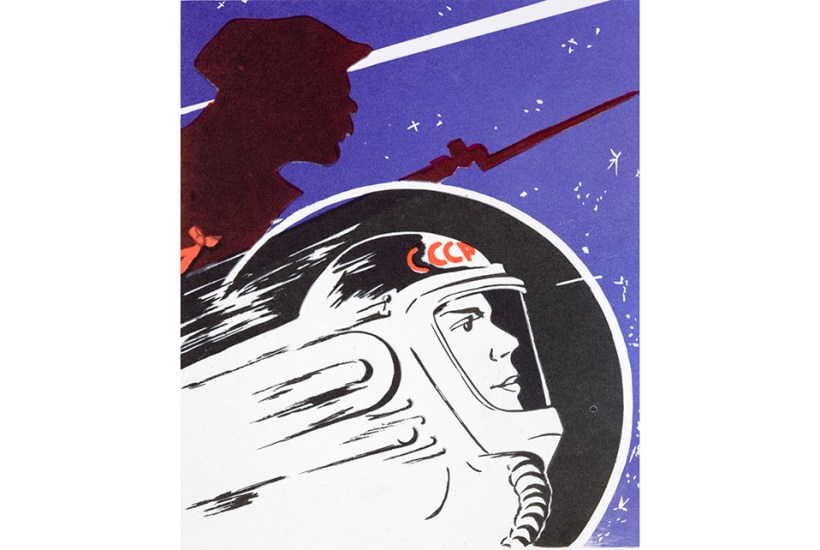Oleg Kononenko has been in space since 15 September last year and has just broken the cumulative record for time in orbit of 879 days. Being Russian he is referred to as a cosmonaut. Americans are astronauts.
It seems odd that Russians can decide what English-speakers call their spacemen. It seemed odder to me that, when the Soviet Union promoted atheism, it should focus on the orderly universe that cosmos suggests.
Cosmos is an ancient Greek concept. Pythagoras was credited with seeing all things as an ordered cosmos. The meanings of cosmos in Greek included ordered troops in battle and the ornaments of a woman’s dress. The Latin equivalent of cosmos, mundus, could also mean ‘ornament’. Cosmos in the New Testament can signify the present age, the world as it is, as opposed to the heavenly future. Mundus likewise signified the mundane or worldly realm. But it was the ordered and decorative senses that surely inspired the Christian name Cosmas, borne by a 3rd-century martyr who was widely revered.
Cosimo de’ Medici was born in 1389. A later Medici, Cosimo III (1642-1723), was a friend of the 2nd Duke of Gordon who called his son Cosmo, introducing the name to Britain.
A boost for cosmos came with Alexander von Humboldt’s Cosmos: A Sketch of a Physical Description of the Universe, the first volume of which came out in 1845. The author defined his cosmos as ‘the assemblage of all things in heaven and earth, the universality of created things, constituting the perceptible world’. Thomas Carlyle, in his endless biography of Frederick II of Prussia (1858-65), adopted the term cosmic as an antonym to chaotic, writing of ‘the dark chaotic dullard, who knows the meaning of nothing cosmic or noble’.Cosmonaut appeared in an English translation from Russian in 1959, two years before Yuri Gagarin became the first.
Got something to add? Join the discussion and comment below.
Get 10 issues for just $10
Subscribe to The Spectator Australia today for the next 10 magazine issues, plus full online access, for just $10.
You might disagree with half of it, but you’ll enjoy reading all of it. Try your first month for free, then just $2 a week for the remainder of your first year.









Comments
Don't miss out
Join the conversation with other Spectator Australia readers. Subscribe to leave a comment.
SUBSCRIBEAlready a subscriber? Log in